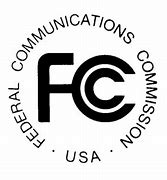Brendan Carr, the soon-to-be Chairman of the Federal Communications Commission (FCC), is expected to usher in a new era of oversight and regulation that could dramatically reshape the agency’s approach to the telecommunications, internet, and media industries. Known for his conservative stance, Carr plans to scrutinize content policies at significant technology and broadcast companies while dismantling diversity and inclusion programs within the FCC. Carr, a vocal critic of perceived censorship by large tech platforms, will likely focus on what he sees as bias in content moderation practices. His approach aligns with broader Republican efforts to challenge social media giants like Meta, X (formerly Twitter), and Google, which some conservatives accuse of silencing right-leaning viewpoints.
Targeting Content Moderation and Big Tech
Under Carr’s leadership, the FCC may attempt to expand its regulatory reach into content moderation decisions made by tech companies. While the FCC traditionally has limited authority over online platforms, Carr has advocated for using the agency’s influence to counter what he describes as “gatekeeping” by Silicon Valley firms. “We need to ensure that the public square remains open and free,” Carr stated in previous remarks. He has supported revisiting Section 230 of the Communications Decency Act, which provides liability protections for platforms hosting user-generated content. Though the FCC’s direct role in this debate is limited, Carr has suggested that the agency could collaborate with other federal entities to scrutinize tech practices.
Rolling Back Diversity and Inclusion Initiatives
Carr’s agenda also includes dismantling diversity and inclusion programs within the FCC. These initiatives, aimed at fostering a more equitable telecom and media landscape, have included efforts to increase minority ownership of broadcast stations and promote broadband access in underserved communities. Critics of Carr’s stance argue that eliminating these programs could undermine efforts to close the digital divide and reduce representation disparities in the media and telecom sectors. However, Carr and his supporters contend that such initiatives are unnecessary and could impose undue regulatory burdens on businesses.
Industry and Advocacy Groups React
Carr’s impending leadership has drawn mixed reactions from industry stakeholders and advocacy groups. Large tech companies are bracing for potential confrontations over their content policies, while media organizations express concern about the rollback of diversity programs. Consumer advocacy groups, meanwhile, worry that Carr’s deregulatory approach could exacerbate inequities in broadband access, particularly in rural and low-income areas. “This shift in leadership could have significant implications for digital inclusion efforts nationwide,” said one advocacy representative.
A Shift in FCC Priorities
Carr’s leadership is expected to mark a significant departure from the current FCC’s priorities. Under Chairman Jessica Rosenworcel, the FCC has focused on expanding broadband access, promoting net neutrality, and supporting diversity initiatives. His tenure could see the FCC adopt a more business-friendly stance, emphasizing consumer protection and equity measures less. As Carr prepares to take the helm, the telecommunications industry faces uncertainty. Whether his agenda will result in meaningful changes or face pushback from Congress, courts, or advocacy groups remains to be seen.




